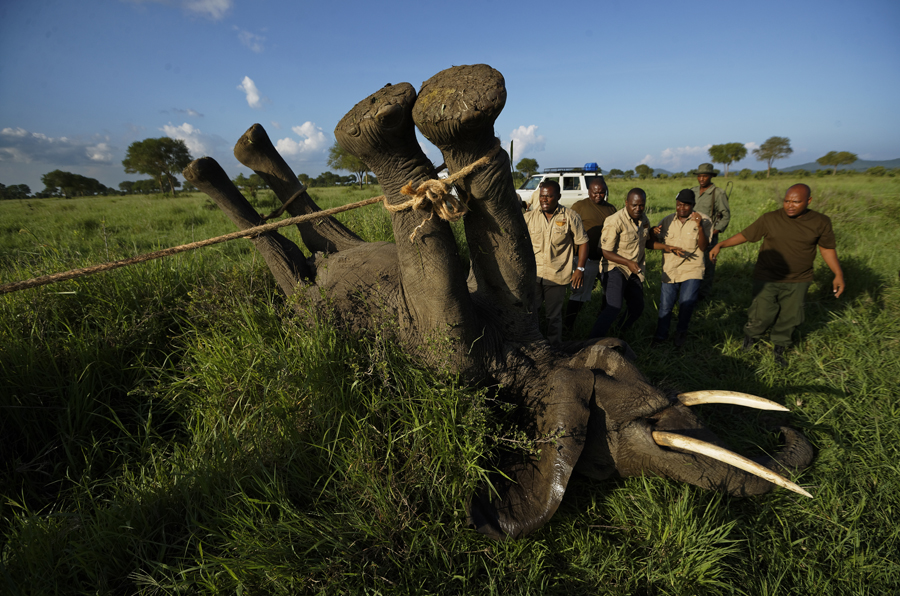Battle for elephants gains ground but hard work remains
China Daily | Updated: 2018-04-20 10:54

MIKUMI NATIONAL PARK, Tanzania - The elephant staggered and keeled over in the tall grass in southern Tanzania, where some of the world's worst poaching has happened.
It wasn't a killer who targeted her but a conservation official, immobilizing her with a dart containing drugs. Soon she was snoring loudly, and they propped open her trunk with a twig to help her breathe. They slid a 12-kilogram GPS tracking collar around the rough skin of her neck and injected an antidote, bringing her back to her feet. After inspecting the contraption with her trunk, she ambled back to her family herd.
The operation was part of a yearlong effort to collar and track 60 elephants in and around Tanzania's Selous Game Reserve, widely acknowledged as 'Ground Zero' in the poaching that has decimated Africa's elephants in recent years. The Associated Press traveled to the area to witness how the battle to save the continent's elephants is gaining some momentum, with killings declining and some herds showing signs of recovery. Legal ivory markets are shrinking worldwide, and law enforcement has broken up some key trafficking syndicates, say experts.
But it's far too early to declare a turnaround. Poachers are moving to new areas and traffickers are adapting. The rate of annual elephant losses still exceeds the birthrate. And the encroachment of human settlements is reducing the animals' range.
"The trend in poaching is going in the right direction, but we have a long way to go before we can feel comfortable about the future for elephants," said Chris Thouless of Save the Elephants, a group based in Kenya, where elephant numbers are rising again.
In a move to crack down on demand, Britain this month announced a ban on ivory sales. In China, trade in ivory and ivory products is illegal as of 2018. And in the United States, a ban on ivory apart from items older than 100 years went into place in 2016. If poaching can be brought under control here in Tanzania, there is hope that the killing of elephants can be stemmed elsewhere on the continent.
























